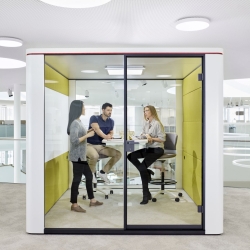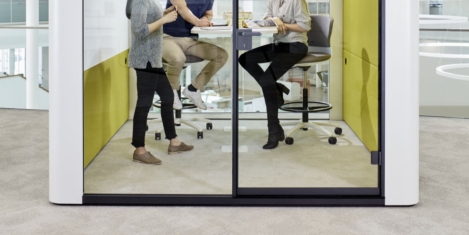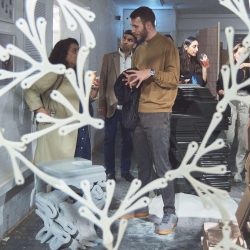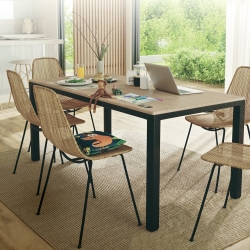August 7, 2023
Sedus office cube solutions: a symbiosis of proximity and distance
 Open space concepts, flexibility and new working styles will continue to be defining characteristics of the office of the future. They offer a number of advantages by eroding entrenched structures and supporting collaboration and communication. When people work in close proximity, with flexible meetings and spontaneous exchanges, they are able to determine the shape of each working day. Employees are increasingly deciding for themselves where and how they can best manage their tasks. Concentrated individual work shifts seamlessly into collaborative work and teamwork precedes periods of retreat or relaxation. For certain tasks, focus, silence and a sense of distance from the outside environment are essential. The office cube solution is one way of insulating people from interruptions and unwelcome noise. As an enclosed cubicle and thanks to its acoustically effective components, se:cube from Sedus can minimise acoustic and visual disruption. More →
Open space concepts, flexibility and new working styles will continue to be defining characteristics of the office of the future. They offer a number of advantages by eroding entrenched structures and supporting collaboration and communication. When people work in close proximity, with flexible meetings and spontaneous exchanges, they are able to determine the shape of each working day. Employees are increasingly deciding for themselves where and how they can best manage their tasks. Concentrated individual work shifts seamlessly into collaborative work and teamwork precedes periods of retreat or relaxation. For certain tasks, focus, silence and a sense of distance from the outside environment are essential. The office cube solution is one way of insulating people from interruptions and unwelcome noise. As an enclosed cubicle and thanks to its acoustically effective components, se:cube from Sedus can minimise acoustic and visual disruption. More →


















 A significant majority (85 percent) of employees feel like they are just a cog in the machinery of their organisation and 43 percent have no idea how their performance contributes to business success, according to a new survey of employee experience and expectations. According to the
A significant majority (85 percent) of employees feel like they are just a cog in the machinery of their organisation and 43 percent have no idea how their performance contributes to business success, according to a new survey of employee experience and expectations. According to the 















July 31, 2023
Digital nomads are starting to price out local communities around the world
by Dave Cook • Cities, Comment, Flexible working